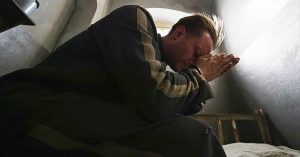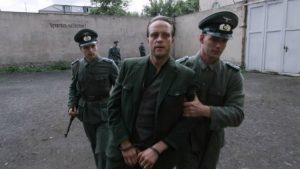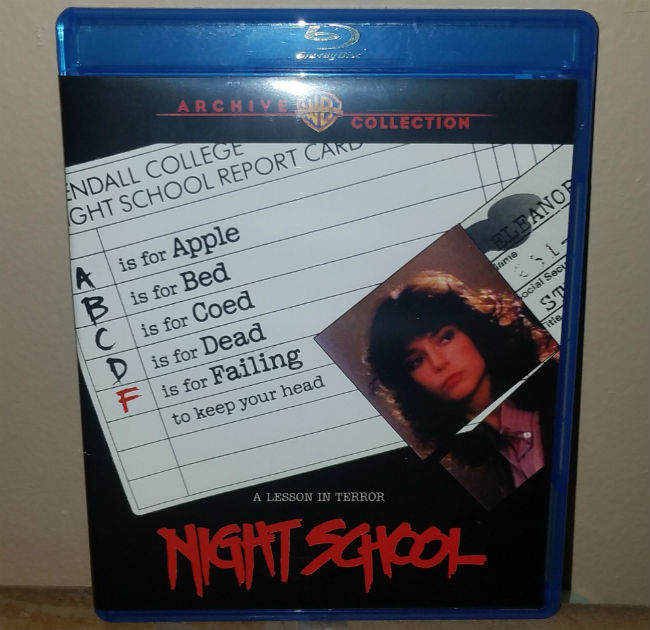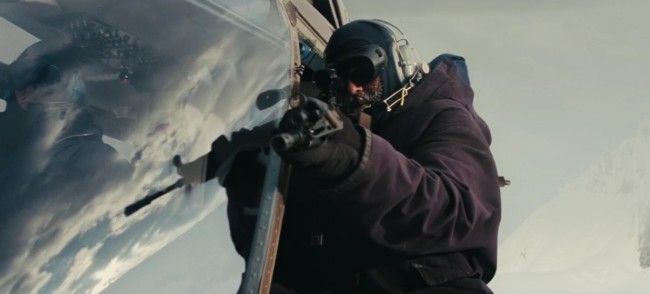A Hidden Life
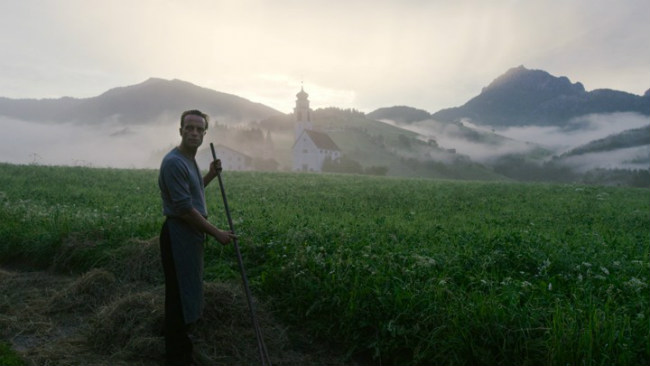
What do you do when you know the leaders of your country are evil? You either join the evil and spread the lies like millions of other Germans did during the Nazi regime or you resist no matter the consequences.
Terrance Malick all but disappeared from the cinematic landscape after the release of 1978’s Days of Heaven. Twenty years later Malick returned with one of the greatest anti-war movies ever made. Malick’s The Thin Red Line was heralded as a celebration. Considering the scope and magnitude of his films Malick’s output since his return could be called steady. In A Hidden Life Malick has returned to tell one his most spiritual and religious movies to date.
A Hidden Life is the story of Franz Jagerstatter’s personal struggle and resistance against the Nazi regime during World War II. In this day and age of hashtag resistance Franz’s resistance will look almost alien to most viewers. He didn’t parade in the streets holding banners. There were no profound speeches at the top of stairs. Jagerstatter’s resistance and defiance of Adolf Hitler didn’t trend too far from his village in the Austrian Alps.
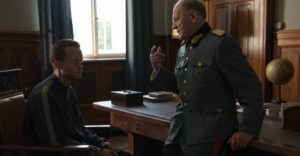
Malick’s films are not the easiest films to watch. It’s not so much the subject matter that makes his films difficult to watch, but that definitely factors into the difficulty level. The themes in his movies tend to be about conflicts between people and their environment and our place in the universe. Spirituality runs deep in movies like The Thin Red Line and The Tree of Life. The issues is Malick rarely spoon feeds his audience. Watching a Malick movie means a viewer has to stay engaged with the movie, pay attention, and keep their brain turned on from opening credits to the end credits.
A Hidden Life is perhaps Malick’s most accessible movie since his return to film. You would be forgiven if you missed the narrative of John Bunyan’s Pilgrim’s Progress running through Knight of Cups. Malick doesn’t mask the message or themes in A Hidden Life. The message is simple: When an evil government is in control you can either join and spread the lies or do the right thing and resist. Doing the right thing isn’t always the easiest thing to do and often you will pay the price.
Malick makes it very apparent what and who Franz is resisting. Spliced into the movie scenes from Triumph of the Will. If there’s an antithesis to A Hidden Life it’s Triumph of the Will. As grand as the titles sounds the movie is mere German propaganda. At its worst it highlights the evil of Adolf Hitler and the Nazis.
Franz is asked more than once in A Hidden Life if he thought his sacrifice would mean anything. The German lawyer assigned to him while he was in prison asked if he thought anyone would ever know what he did. Judge Luben (Bruno Ganz in his final role) asked if he thought his sacrifice would change the course of the war. Franz never specifically answers their questions. Malick ultimately leaves the answer up to the audience.

Malick’s signature is still all over the film. Sweeping shots of beautiful landscapes predominant the movie. There’s no shortage of voice overs in the film. This approach has served Malick well in the past, but using it in every movie can lead to a case of “going to the well too many times.” In A Hidden Life voice overs are, for the most part, regulated to the reading of letters from Franz to and Fani while he was in prison awaiting trial. These scenes are some of the most powerful in the movie.
Fani, Franz’s wife, says at the beginning of the film that they “lived above the clouds.” The dual meaning of this phrase is very apparent. The Jagerstatter farm sat high above the village.Cinematographer Jorg Widmer paints their home in the mountains while the village their friends lived xxxx engulfed by clouds. The other meaning is that they thought they were immune to what was happening in the outside world. Their hope had been that, even after returning from basic training, the war would be over before Franz was called up for duty. Unfortunately, this wasn’t to be the case.
Franz Jagerstatter was executed August 9, 1943. Sixty four years later the Catholic Church declared Jagerstatter a martyr and bestowed sainthood upon him.
A+

